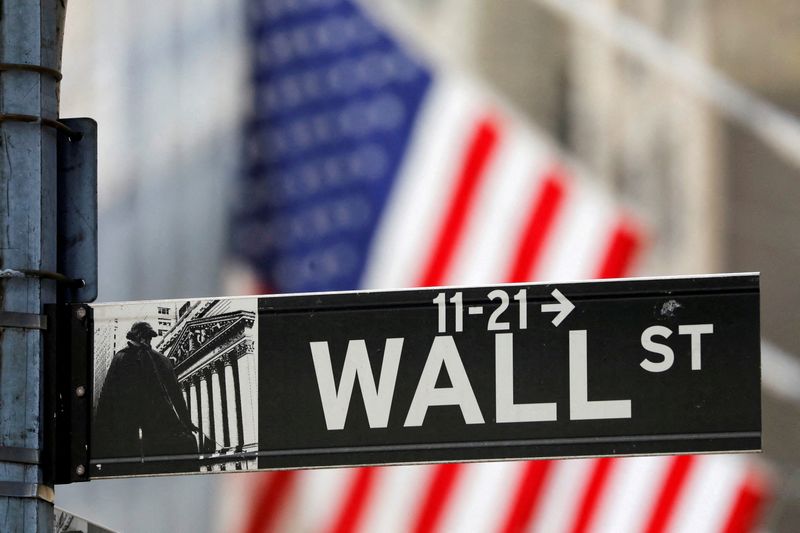A look at the day ahead in U.S. and global markets from Mike Dolan
Wall Street feels a little bruised after its worst week in 10 spoiled the post-election party, with home truths on interest rates and earnings seeping back in along with all the uncertainty on what a new administration will actually do come January.
Stocks were side-swiped on Friday after a week of irksome inflation readings, hot retail updates and Federal Reserve boss Jerome Powell's equivocation on future easing.
There was also trepidation, however, ahead of chip giant Nvidia (NASDAQ:NVDA) latest earnings report on Wednesday - as the world's biggest company by market value and artificial intelligence bellwether faces another test of the near 800% stock boom over the past year.
The $3.5 trillion company is expected to post net income of $18.4 billion as revenue jumped over 80% to $33 billion, according to LSEG data. Nvidia's huge earnings beats over the past year, however, are inevitably becoming more modest.
With reasonable concerns about the chances of a global trade war rumbling in the background, Nvidia's shares took a 2% hit early on Monday after weekend reports that its new Blackwell AI chips, which have already faced delays, encountered problems with accompanying servers which overheat.
Yet, stock index futures put on a braver face ahead of today's open and tried to claw back some of last week's swoon - which chopped almost 50% off the S&P500's post-election rally.
The broader earnings season has comfortably beaten estimates, with aggregate annual profit growth coming in close to 9% - compared to the 5.3% forecast at the start of October.
Next (LON:NXT) year's growth estimates are being pared back, however, with full-year S&P500 profit growth forecasts dropping about one percentage point to 14% over the past two weeks.
Beyond stocks, the restive Treasury market steadied first thing on Monday, with 10-year yields remaining below 4.5%.
Futures pricing for another Fed rate cut next month shows about a 60% chance of further easing in December and 75 basis points of cuts are now priced to the end of next year.
Despite controversial cabinet picks to date, President-elect Donald Trump still has not proposed names for the top economic posts at the Treasury or Commerce departments or the new Trade Representative.
Trump added former Fed Governor Kevin Warsh and billionaire Marc Rowan to the list of candidates to become his Treasury secretary, the New York Times (NYSE:NYT) and Wall Street Journal reported on Sunday.
A former investment banker, Warsh served on the Fed Board from 2006 to 2011 and was seen as both a fiscal hawk and a proponent of higher savings rates. Rowan co-founded investment manager Apollo Global Management (NYSE:APO) and became its CEO in 2021.
The reports threw doubts over what has been seen as a two-horse race between Howard Lutnick, the CEO of Cantor Fitzgerald, and hedge fund manager Scott Bessent.
Geopolitical developments were also back in the frame as G20 leaders meet in Brazil - a summit likely to focus on possible breakthroughs in climate finance rather than even thornier issues of trade and tariffs.
Tensions in Ukraine rose several notches too after the Russian bombardment of the country's energy infrastructure this weekend was followed by U.S. President Joe Biden's decision to allow Ukraine to use its weapons to strike into Russia.
Crude oil prices were a touch higher first thing.
The dollar was steady - close to recent highs - and Bitcoin retained the bulk of its post-election surge and hovered above $91,000.
Key developments that should provide more direction to U.S. markets later on Monday:
* US November NAHB housing market index, September TIC data on Treasury flows, New York Federal Reserve October service sector survey

* G20 leaders summit in Rio de Janeiro
* Chicago Federal Reserve President Austan Goolsbee speaks; European Central Bank President Christine Lagarde and ECB chief economist Philip Lane speak
(By Mike Dolan, mike.dolan@thomsonreuters.com, editing by Ed Osmond)